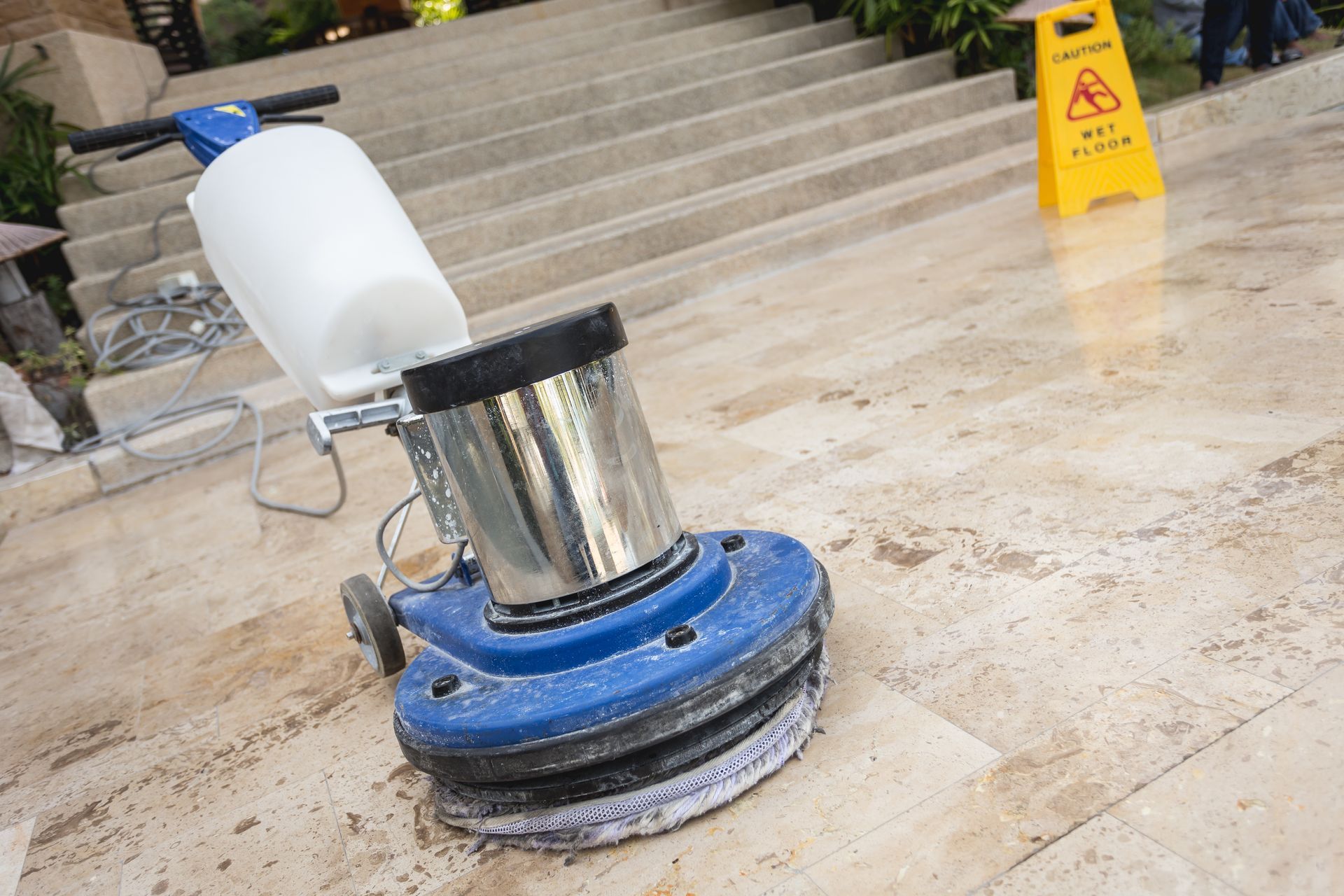Natural stone surfaces, be it countertops, floors, or decorative accents, are as much about beauty as they are about endurance. But even with their sturdiness, they're not immune to the occasional spill. From red wine mishaps during a dinner party to the morning's coffee spill, life happens. The good news? With prompt action and the right technique, your stone surface can remain as pristine as the day it was installed. Here's how to tackle some of the most common spills on natural stone:
Red Wine:
Act Fast! Red wine can stain, especially on lighter stones.
- First Steps: Blot (don't rub) the spill immediately with a soft, clean cloth.
- Cleaning: Mix a few drops of pH-neutral soap with water. Dampen a cloth and gently wipe the area. Rinse with clean water and dry with a soft cloth.
Coffee:
Coffee stains can leave a brownish tint if not treated promptly.
- First Steps: Blot up the liquid quickly.
- Cleaning: Use a pH-neutral stone cleaner. Avoid acidic cleaners as they can etch the surface, especially on marble.
Oil:
Oily substances can penetrate the stone, making them a bit trickier.
- First Steps: Remove any excess oil with a paper towel without spreading it.
- Cleaning: Apply a poultice made of baking soda and water (to a paste consistency). Leave it on the stain for 24 hours, then rinse with water.
Ink or Marker:
These can be especially problematic on lighter stones.
- First Steps: Blot instead of wiping to avoid spreading.
- Cleaning: For countertops, a hydrogen peroxide solution (like that found in hair bleaching products) dabbed on the stain can help. For darker stones, try acetone.
Citrus and Acidic Spills:
Lemon juice, tomato sauce, and other acidic substances can etch marble and some other stones.
- First Steps: Blot immediately.
- Cleaning: Flush the area with water and use a pH-neutral cleaner. Buff dry.
Tips to Remember:
- Test First: Always test any cleaning solution on an inconspicuous spot to ensure it doesn’t discolor or damage the stone.
- Seal Your Stone: A quality sealer provides a protective barrier, making it easier to clean up spills before they become stains.
- Avoid Harsh Chemicals: Cleaners with acid, ammonia, or alcohol can damage natural stone. Stick to pH-neutral solutions.
- Routine Cleaning: Regular cleaning with the right products helps maintain the stone's natural beauty and reduces the impact of spills.
Spills are a part of life, but they don't have to become a permanent mark on your beautiful stone surfaces. With swift action and the right cleaning approach, your natural stone can continue to shine, adding elegance and value to your space for years to come.


